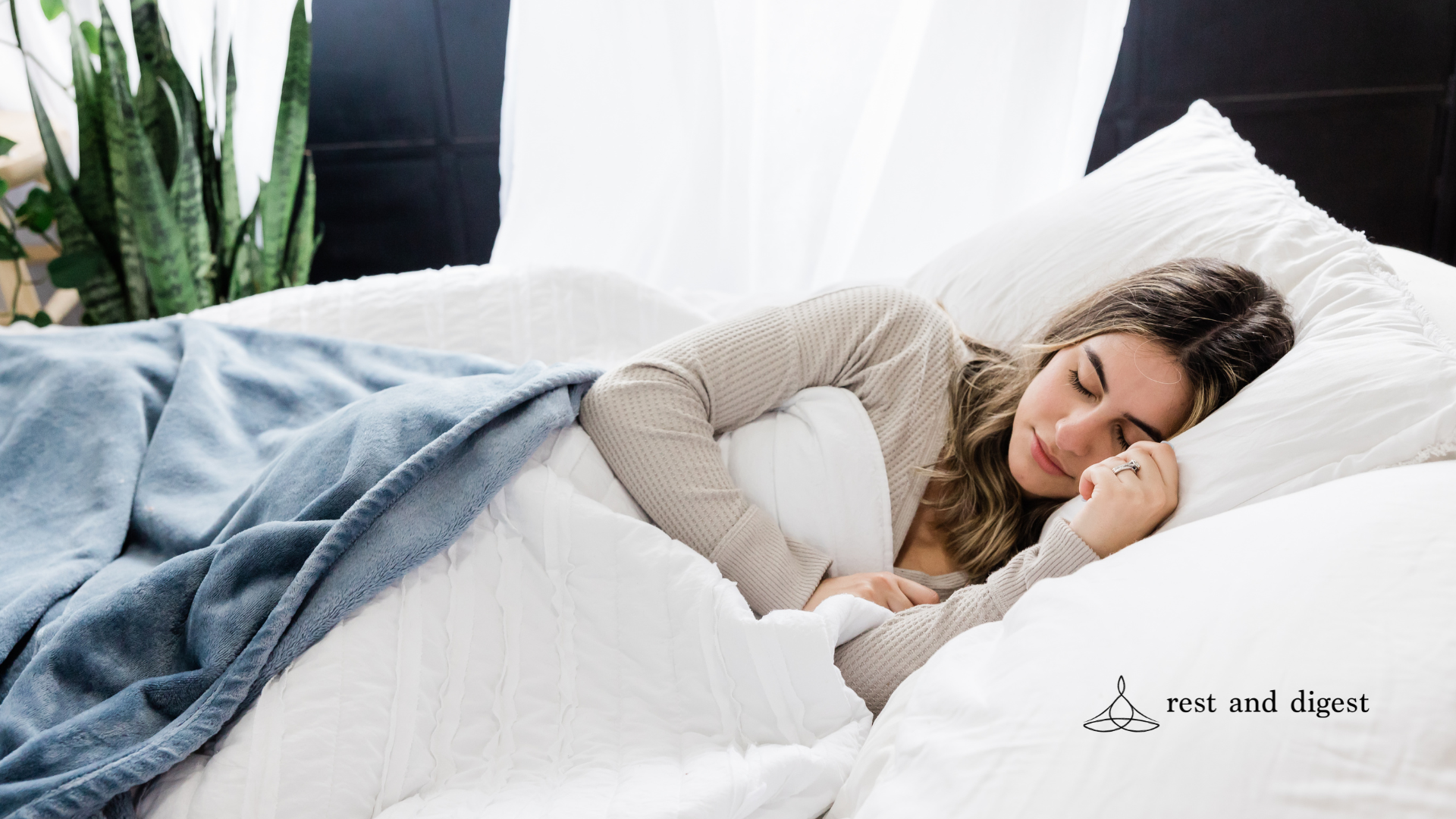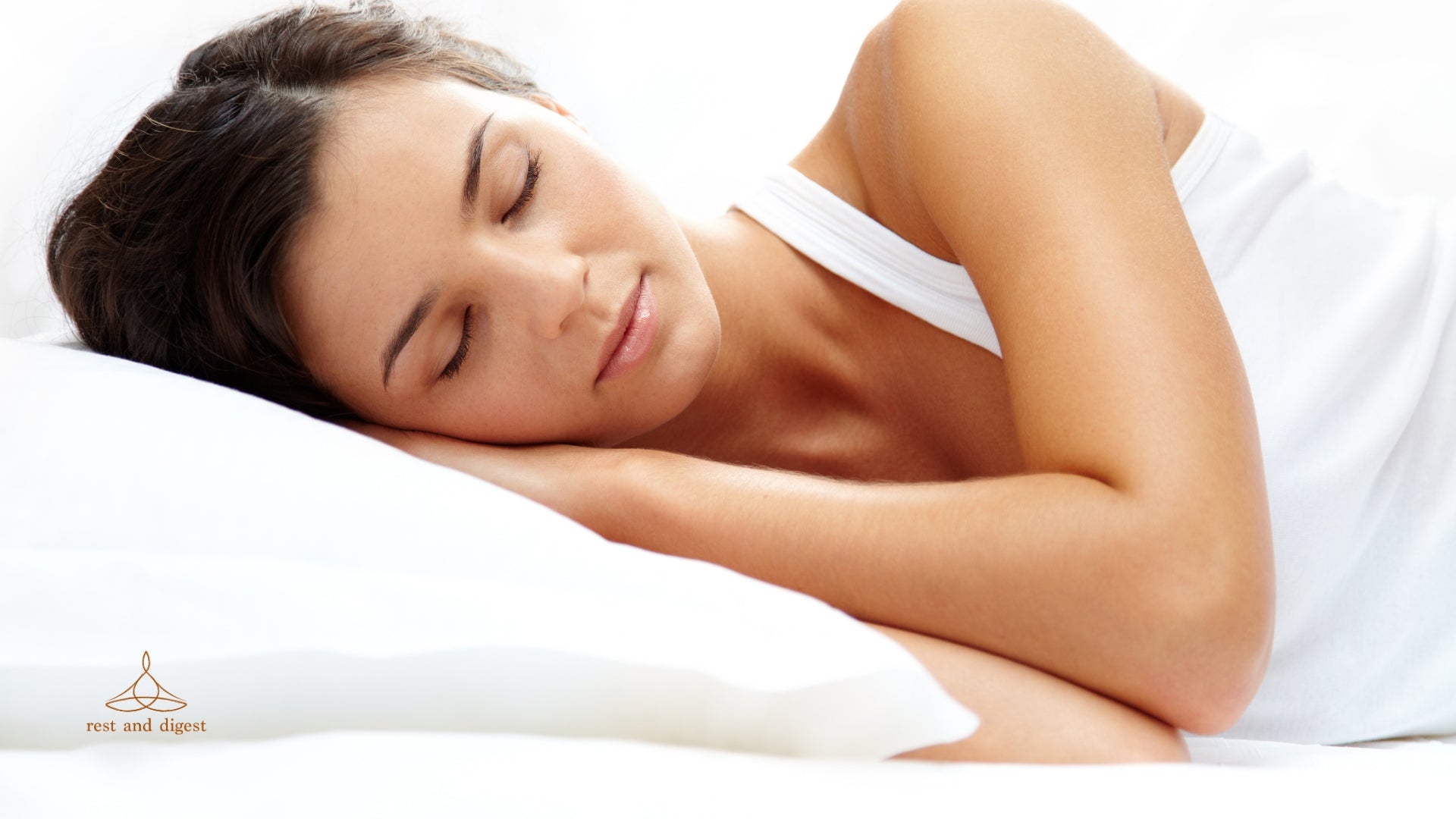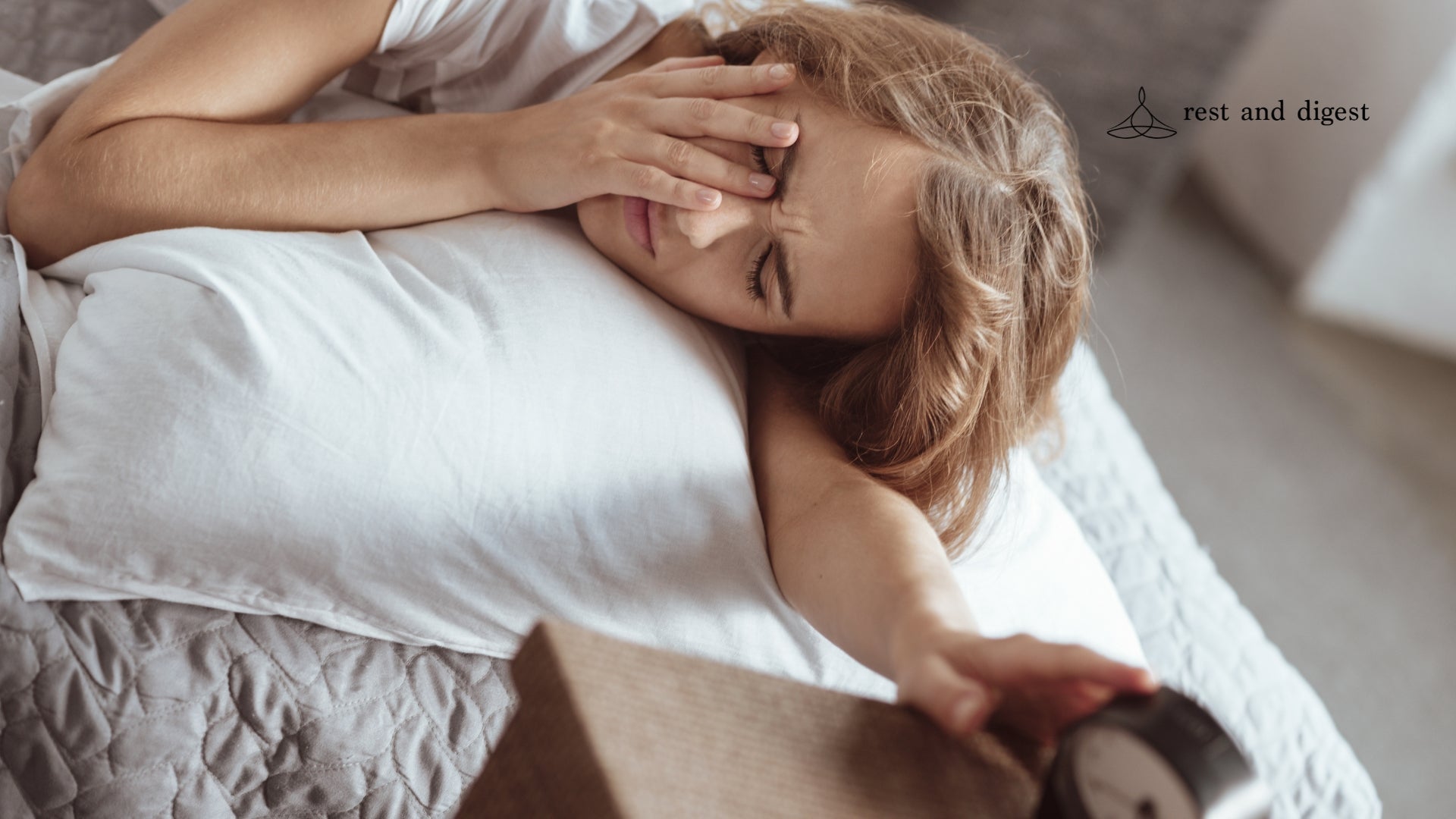Article: How To Sleep Better at Night Naturally

How To Sleep Better at Night Naturally
We all need to get enough sleep to maintain good health, improve general well-being and promote good self care practices. Various physiological processes including emotional regulation, immune function, and memory consolidation are controlled by sleep. Lack of enough sleep may lead to various health conditions including mood disorders, diabetes, heart disease, and obesity.
Despite the significance of sleep, many people experience difficulties in achieving restful sleep and sleep disorders such as insomnia, and obstructive sleep apnea are now common among the population.
With such growing concerns over inadequate rest, natural ways of enhancing good non-drug-assisted sleeping patterns have gained popularity. These techniques focus on addressing the root cause of sleeplessness through lifestyle changes while advocating for healthy practices that will encourage normal slumber and improved general wellness.
So, keep reading to discover some great tips on how to get into the right routines and patterns of behavior each day ion order to learn how to sleep better at night naturally.
Why Can’t I Sleep at Night?
Sleep-wake cycle times are managed by circadian rhythms. These internal biological timekeepers are entrained to the 24-hour day-night cycle, but they can be influenced by external agents such as light and daily routines.
Several factors disrupt sleep and interrupt the normal sleep-wake cycle. For example, stress, or anxiety may lead to physiological responses that make it hard for one to relax and fall asleep. Also, poor sleep hygiene practices like random sleeping schedules, excessive intake of caffeine, and exposure to electronic screens before bed can upset normal sleeping patterns. Other lifestyle choices including eating habits, physical activities, and substance abuse can also affect the quantity of time spent in bed.
Sleep Calculator
You should try to fall asleep at one of the following times:
Please keep in mind that you should be falling asleep at these times. The average human takes fourteen minutes to fall asleep, so plan accordingly!
If you head to bed right now, you should try to wake up at one of the following times:
Please keep in mind that you should be falling asleep at these times. The average human takes fourteen minutes to fall asleep, so plan accordingly!

I want to wake up at...
How to Get Good Night Sleep in Natural Ways
It’s simple. You just have to follow these tips and guidelines.
Creating a Sleep-Friendly Environment
Creating an optimal bedroom environment is necessary for achieving a higher quality of sleep. Maintaining the temperature at around 15-19°C (60-67°F) not only facilitates sleep onset but also helps in promoting deep restorative sleep.
Cut down light and noise
Since the body uses cues from darkness, controlling lighting with the use of blackout curtains or eye masks could signal the body that it is bedtime. You can also use white noise generators or earplugs to reduce outside noise and create a calmer sleeping environment.
Choose the optimal bedding
An appropriate mattress that supports the spine well and relieves pressure points can help in averting any discomforts and promoting good sleeping positions. Similarly, choosing bedding made of materials that are breathable as well as moisture-wicking such as the Rest And Digest 100% Mulberry Silk Pillowcase can contribute to temperature regulation of the body, thus enhancing sleeping comfort.
Declutter the bedroom
Eliminating clutter and unnecessary distractions can create a calming effect and enhance relaxation before going to bed. Also, it is advisable to keep off any electronic devices such as mobile phones, tablets, or televisions as exposure to stimulating content as well as blue light can inhibit the natural circadian rhythm.
Establishing a Bedtime Routine
Over time, better sleep quality can be achieved by establishing a consistent sleep schedule that includes going to bed and waking up at the same times every day. Establishing a relaxing bedtime routine helps signal to your brain that it’s time to unwind for sleep. Our Analog Alarm Clock With Light might come in handy during time management.
Participating in restful activities before sleep can also enhance a peaceful and tranquil end. Filling your day with books, mindful exercises such as mindfulness or meditation, or mild stretching can help reduce stress and tension.
Making Changes to Diet and Lifestyle
Food for Better Sleep
Diet plays an important role in sleep quality. Foods rich in tryptophan, a natural amino acid that serves as a precursor for serotonin and melatonin encourage relaxation and sleepiness. For example, these foods include turkey, dairy products, nuts, and seeds among others.
On the other hand, eating large or spicy meals right before bed might interfere with digestion, raise the risk of heartburn, or cause discomfort that makes it difficult to fall asleep. It is important that you take your meals at least two hours before going to bed.
Avoiding caffeine or alcohol during the evening time cannot be understated as both interfere with sleep quality thus disrupting natural circadian rhythms.
Regular exercise
Exercising regularly has been shown to enhance sleep quality and alleviate signs of insomnia. Participating in moderate-intensity cardiorespiratory activities such as walking, running, or cycling for at least 30 minutes on most days of the week could improve sleep that is deeper and more restorative. You can also try out some yoga to ease your tensions before bed.
However, it is important to avoid doing vigorous exercises just before bed since this can be stimulating and make it difficult to fall asleep.
Using Natural Sleep Aids
Some herbal remedies and supplements might help ensure better sleep, although, their efficacy may not always be the same in every individual.
Natural supplements for sleep
For instance, Valerian root, melatonin plus magnesium are some of the most popular natural sleeping aids. Studies show that valerian root helps people relax and fall asleep faster. Melatonin helps to regulate sleep-wake cycles and improves overall sleep quality, while Magnesium helps in muscle relaxation and might relieve insomnia symptoms. You can check out our website for The Base Collective magnesium bath salts and sleep spray.
Herbal teas for sleep
Some people find that drinking tea such as our Love Tea Organic Calming Tea is another natural way to enhance the quality of their sleep. For instance, chamomile tea has some constituents known to act mildly as sedatives, calming the mind and inducing drowsiness. Similarly, peppermint tea and passionflower tea are famous for their relaxing properties which help to reduce anxiety levels.
However, caution should be exercised on caffeine content as a few teas like green tea or black tea contain caffeine which may interfere with sleep if taken just before going to bed.
Caution: It is not advisable to depend on only sleeping aids without resolving primary insomnia causes or changing your lifestyle as it might cause addiction thereby covering up the actual problem beneath.
Stress Management Techniques
The importance of stress management techniques cannot be understated when talking about how to sleep better at night naturally.
- Deep breathing exercises like diaphragmatic breathing or the 4-7-8 technique may help activate the relaxation response of the body leading to reductions in physiological arousal.
- Mindfulness meditation is also another potent way of coping with anxiety and stress. You can have a calming influence on your mind and cultivate inner peace by directing all of their perception to the present moment, without passing judgment.
Note: While natural techniques for inducing sleep are effective for many people, it is advisable to consult medical experts if you have any form of underlying mental health conditions such as depression, anxiety, or posttraumatic stress disorder (PTSD).
Final Thoughts on Getting a Good Night’s Sleep Naturally
To put it briefly, if you are interested in improving the quality of sleep naturally, you need to adopt a multifaceted approach that addresses various areas of lifestyle and promotes healthy sleeping habits. While prioritizing sleep health is imperative, each person should experiment with different strategies to see which ones suit them best.
By adopting a thoughtful and organized lifestyle along with proactive self-care practices, you can not only enjoy sound sleep but also improve your general health and well-being.





